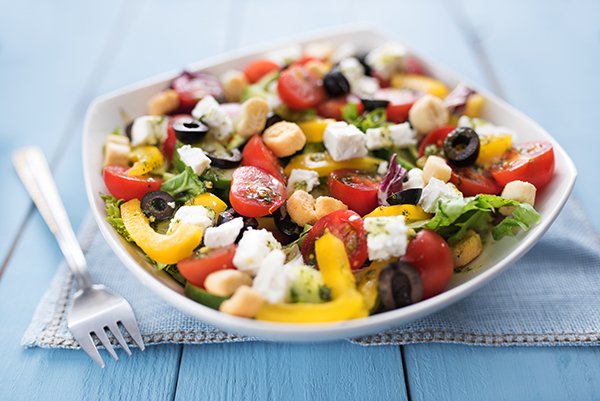 Parler
Parler Gab
Gab
- Research shows the Mediterranean diet – rich in fruits, vegetables, fish and olive oil – can reduce age-related macular degeneration (AMD) progression by 23–34 percent, offering a natural way to preserve vision.
- As the leading cause of vision loss in older adults, AMD damages the retina's macula, impairing daily tasks. Poor diets high in processed foods worsen the condition.
- Omega-3s, vitamins C and E and antioxidants (lutein/zeaxanthin) in the Mediterranean diet combat oxidative stress, shielding the retina more effectively than synthetic supplements.
- The study highlights the diet's broader health benefits (heart health, cognitive function) and its cost-effective, side-effect-free approach compared to pharmaceuticals.
- Experts recommend replacing processed foods with nuts, fatty fish, olive oil and colorful vegetables to reduce AMD risk and improve overall health.
How the Mediterranean diet fights AMD
Researchers conducted a sweeping meta-analysis, reviewing eight previous studies linking the Mediterranean diet to AMD outcomes. Their findings were striking: long-term adherence to this diet – packed with whole grains, leafy greens, fatty fish and antioxidant-rich produce – slowed AMD progression by 23 percent to 34 percent. Key nutrients in the diet, including omega-3 fatty acids, vitamins C and E, and the antioxidants lutein and zeaxanthin, actively protect the retina. These compounds neutralize oxidative stress, a major contributor to macular damage. Unlike synthetic supplements, these nutrients are absorbed naturally through food, reinforcing the body’s defenses. The study analyzed data from thousands of participants across multiple countries, comparing those who followed Mediterranean eating habits to those who didn't. Case-control studies showed a 34 percent reduction in AMD risk, while cohort studies demonstrated a 23 percent decrease. Though the number of studies was limited, the consistency of results strengthens the case for dietary intervention. Critically, the Mediterranean diet’s benefits extend beyond eye health. Decades of research confirm its role in reducing heart disease, diabetes and cognitive decline – proof that traditional, unprocessed diets outperform modern nutritional trends.Why this matters now more than ever
In an era of skyrocketing healthcare costs and over-reliance on pharmaceuticals, the Mediterranean diet offers a low-cost, side-effect-free alternative. Unlike experimental drugs or invasive procedures, this approach requires no prescription – just a return to whole, nutrient-dense foods. Yet despite its proven benefits, Western diets continue to prioritize convenience over health. Processed meals, sugary snacks and seed oils dominate grocery shelves, accelerating chronic diseases. The study's findings underscore a pressing need for public health campaigns promoting dietary education before vision loss becomes irreversible.Practical steps to protect your vision
For those looking to adopt the diet, experts recommend simple swaps:- Replace processed snacks with nuts and fruits.
- Choose fatty fish like salmon over fried foods.
- Cook with olive oil instead of vegetable oils.
- Load half your plate with colorful vegetables at every meal.
- Supplements containing lutein, zeaxanthin and vitamins C and E may provide additional support, but whole foods remain the gold standard.
More related stories:
Study: The Mediterranean diet benefits adults of any age. The long-term benefits of a Mediterranean diet on people with metabolic syndrome. The Mediterranean Diet Spells Disease's Demise. Saffron cures macular degeneration. Reduce Risk of Macular Degeneration with Omega-Three. Sources include: Mindbodygreen.com Examine.com Eatingwell.com Brighteon.comBy Lance D Johnson // Share
The silent mouth-body connection: Early disease detectors found in oral health
By Willow Tohi // Share
The indispensable Tomato: A superfood with exceptional health benefits
By Laura Harris // Share
Governments continue to obscure COVID-19 vaccine data amid rising concerns over excess deaths
By patricklewis // Share
Tech giant Microsoft backs EXTINCTION with its support of carbon capture programs
By ramontomeydw // Share
Germany to resume arms exports to Israel despite repeated ceasefire violations
By isabelle // Share










